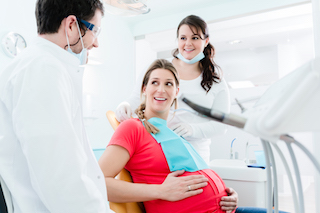Pregnancy is a time of immense joy and anticipation for expectant mothers, but it also comes with a set of responsibilities, including maintaining optimal health for both the mother and the developing baby.
While prenatal care often focuses on nutrition, exercise, and regular medical check-ups, dental care is an aspect that should not be overlooked. This is why you shouldn’t neglect missing out on your appointments with a reputable Windermere dentist.
Remember that the oral health of a pregnant woman can significantly impact the health of her unborn child, particularly concerning infant oral health. Let’s delve into the importance of dental care during pregnancy and its implications for the oral health of infants.
The Connection Between Maternal Oral Health and Infant Oral Health
Research has shown a clear connection between maternal oral health and the oral health of infants. Poor oral health in expectant mothers, including gum disease and untreated cavities, can lead to various complications during pregnancy, such as premature birth, low birth weight, and preeclampsia.
Moreover, certain oral bacteria associated with maternal gum disease have been found in the amniotic fluid and umbilical cord blood, highlighting the potential for these bacteria to reach the developing fetus and affect its health.
Impact of Maternal Oral Health on Infant Oral Microbiome
During pregnancy, the oral microbiome of expectant mothers undergoes changes due to hormonal fluctuations and physiological adaptations. If maternal oral health is compromised, harmful bacteria in the mother’s mouth can be transmitted to the infant during childbirth or through close contact postnatally.
This early colonization of pathogenic bacteria in the infant’s mouth can predispose them to dental caries (tooth decay) and other oral health issues later in life.
Importance of Dental Care During Pregnancy
Given the significant implications for both maternal and infant health, maintaining good oral hygiene and seeking timely dental care during pregnancy is crucial. Here are some essential aspects of dental care for expectant mothers:
Regular Dental Check-ups: Pregnant women should continue to attend regular dental check-ups, preferably in the first trimester or early in the second trimester. Dental professionals can assess oral health status, address any existing dental issues, and provide guidance on oral care practices tailored to pregnancy.
Proper Oral Hygiene: Practicing good oral hygiene habits, such as brushing teeth twice a day with fluoride toothpaste and flossing daily, helps prevent gum disease and tooth decay. Using antimicrobial mouth rinses approved by healthcare providers can further aid in reducing oral bacteria.
Balanced Diet: A nutritious diet rich in vitamins and minerals, particularly calcium, phosphorus, and vitamin C, supports healthy teeth and gums. Pregnant women should aim to consume a variety of fruits, vegetables, dairy products, and lean proteins to meet their nutritional needs.
Management of Dental Issues: Any dental problems, such as cavities or gum disease, should be promptly addressed during pregnancy. Dental treatments, including fillings, root canals, and professional cleanings, can be safely performed with appropriate precautions to ensure the well-being of both the mother and the baby.
Avoidance of Harmful Substances: Pregnant women should refrain from habits that can harm oral health, such as smoking and excessive consumption of sugary foods and beverages. These habits not only increase the risk of dental problems but also pose additional health risks to both the mother and the developing baby.
Dental care during pregnancy plays a vital role in safeguarding the oral health of both the mother and the infant. By prioritizing oral hygiene, seeking regular dental check-ups, and addressing any dental issues promptly, expectant mothers can minimize the risk of adverse pregnancy outcomes and promote optimal infant oral health.
Healthcare providers, including obstetricians and dentists, should collaborate to educate pregnant women about the importance of dental care and provide the necessary support to ensure a healthy start for both mother and baby. Ultimately, by investing in maternal oral health, we can pave the way for brighter smiles and healthier futures for generations to come.
